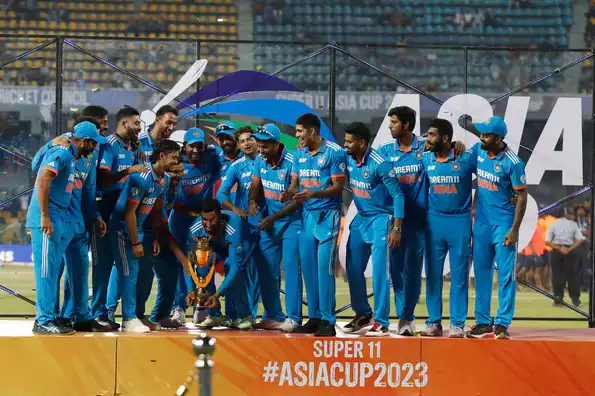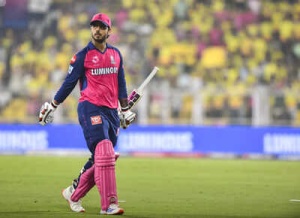The Asia Cup saga may be nearing a resolution. While it's still early to make definitive statements, there's a growing sense of optimism surrounding the tournament, a significant shift from previous uncertainty fueled by tensions between India and Pakistan.
Indications suggest a formal decision could be reached next week. The Asian Cricket Council (ACC) is also aiming to release the schedule for the six-team tournament in the first week of July, coinciding with their expected meeting.
If everything proceeds as planned, the ACC is reportedly targeting a September start, potentially on September 10. The T20 format tournament will feature India, Pakistan, Afghanistan, Sri Lanka, Bangladesh, and the UAE. Promotional activities for the event have already commenced.

The UAE remains the leading contender to host the tournament, although discussions about a hybrid format are also ongoing. While India is the designated host, the ACC previously decided that Asia Cups hosted by either India or Pakistan would be held at neutral venues.
The tournament's future was initially jeopardized after the Pahalgam terror attack in April. Tensions escalated further following India's Operation Sindoor against Pakistan in May, raising concerns about the tournament. There were also increasing calls within India to boycott Pakistan in multilateral events, given the absence of bilateral cricket between the two nations. Discussions regarding India's potential boycott of Pakistan in global events were even suggested for the next ICC meeting.
However, recent developments in international cricket suggest a possible shift in direction. The International Cricket Council (ICC) recently unveiled the schedules for two major global events: the Women's ODI World Cup in India and Sri Lanka, and the Women's T20 World Cup in England. Notably, India and Pakistan are slated to compete against each other in both tournaments, on October 5 in Colombo and June 14 at Edgbaston, respectively.
Although officials from the BCCI, ACC, and ICC have refrained from public comment, it appears that cricket ties between the rivals will continue, at least in global events. These matches are crucial revenue drivers for international cricket. While India and the Board of Control for Cricket in India (BCCI) may not heavily rely on the revenue generated from these high-profile encounters, governing bodies like the ICC and ACC, along with their member boards, do.
Newer articles
Older articles
 Gavaskar Calls for Kuldeep Yadav's Inclusion in Second Test Amid Bumrah Fitness Concerns, Eyes Batting Reshuffle
Gavaskar Calls for Kuldeep Yadav's Inclusion in Second Test Amid Bumrah Fitness Concerns, Eyes Batting Reshuffle
 Android Security Alert: Government Warns of Critical Flaws Exposing User Data
Android Security Alert: Government Warns of Critical Flaws Exposing User Data
 Greg Chappell: Rishabh Pant is Revolutionizing Cricket with Unorthodox Batting
Greg Chappell: Rishabh Pant is Revolutionizing Cricket with Unorthodox Batting
 Heart Attack Warning: 5 Subtle Signs to Watch for a Month Prior
Heart Attack Warning: 5 Subtle Signs to Watch for a Month Prior
 Doctor Reacts to Rishabh Pant's Somersault After Century: 'Unnecessary!' – Surgeon Who Aided Recovery Speaks Out
Doctor Reacts to Rishabh Pant's Somersault After Century: 'Unnecessary!' – Surgeon Who Aided Recovery Speaks Out
 Bezos-Backed Methane-Tracking Satellite Mission Ends Prematurely After Loss of Contact
Bezos-Backed Methane-Tracking Satellite Mission Ends Prematurely After Loss of Contact
 India's Fielding Woes Exposed After Test Loss to England: Former Selector Calls for Patience
India's Fielding Woes Exposed After Test Loss to England: Former Selector Calls for Patience
 Nitish Rana Eyes Delhi Return After Disappointing Two-Year Spell in Uttar Pradesh
Nitish Rana Eyes Delhi Return After Disappointing Two-Year Spell in Uttar Pradesh
 India's Collapse: Gambhir Defends Lower Order But Acknowledges Broader Issues in Test Defeat
India's Collapse: Gambhir Defends Lower Order But Acknowledges Broader Issues in Test Defeat
 Headline:
Global Chocolatiers Unveil Bold New Flavors: From Matcha Yuzu to Spicy Mexican Blends
Headline:
Global Chocolatiers Unveil Bold New Flavors: From Matcha Yuzu to Spicy Mexican Blends